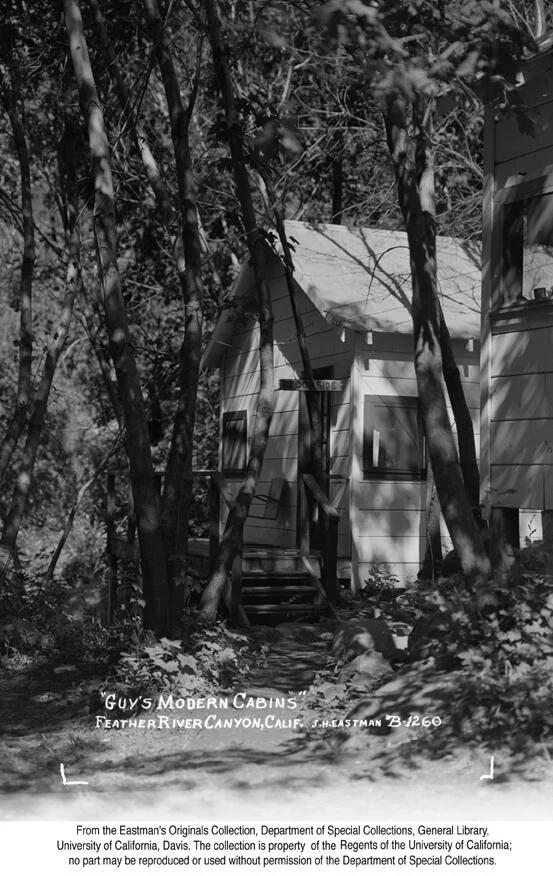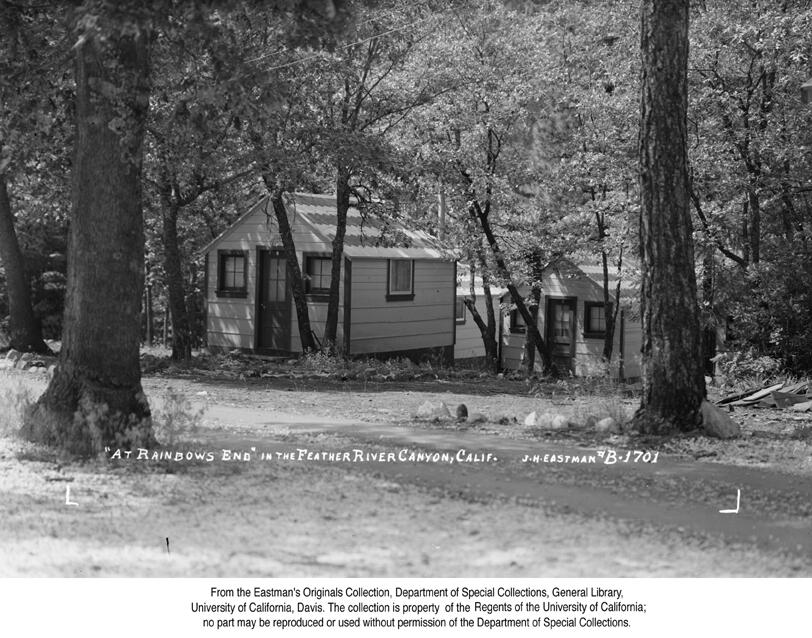A Short Story of a Long history
The town of Pulga was born from a rich, colorful history. It was the indigenous Concow Maidu people who once thrived in the Northern Feather River Canyon, feasting off the plentiful salmon, hunting deer, and foraging the lush landscape until the early 1800’s when the new American settlers came in search of land and a stake in the gold rush. It was the Gramps and King families that would contribute to the most prolific history of this time. The North Fork of the Feather River was being surveyed for railways, the wagon trail was laid nearby, and the abundance of mining prospects had created a palpable excitement in the region.
In 1904 William King solidified his stake in the region by establishing a company town known as Big Bar on the land that is now Pulga. The enterprising King family founded a post office, followed by a school, and a company store to provide for the several hundred men that had come to live and work the land. In 1914 William King then filed for a homestead of 61 acres of the property; running irrigation, electric lights, a sawmill, cattle, and a 10-acre garden. It was in 1916 that Pulga (meaning flea in Spanish) was christened with its new name. Due to confusion with a nearby town that shared the moniker Big Bar, the Western Pacific railroad gifted the new name in reference to its position at the mouth of Flea Valley Creek.
Pulga thrived on the success of the railway, infrastructure and mining operations, becoming a bustling community that stretched well into the mid 20th century. It wasn’t until 1960 that the post office closed, followed by the school when the town was reclaimed for use by the King family who maintained their claim to the land. The cabins were used for family vacations and retreats until the late 60’s when in the midst of the counterculture movement, Pulga’s close approximation to the Bay area brought artisans, musicians and beatniks to town. The new residents relished its quaint charm and transformed it into an eclectic gathering place. Such famed performers as Janis Joplin and the Grateful Dead were said to have come through, as well as many others.
It was in 1994 that the family collectively sold the property passing on the legacy to a new institution. It became Mystic Valley retreat, a sought after getaway for those seeking respite from the city with interests in meditation and hypnotherapy. As the new owners and the property aged many of the buildings fell into disrepair and were in need of substantial restoration.
In March of 2015, ownership changed hands once again and the laborious task of rehabilitating the historic town went underway. A blossoming new mythology has been initiated, accompanied by the friends and artists that have collectively helped breathe new life into the strong roots of the once ramshackle gold mining town of Pulga. Come join us in writing the new chapters of this old town. For the history aficionado or novice alike, please inquire for a full copy of our detailed history during your stay.










































































































































